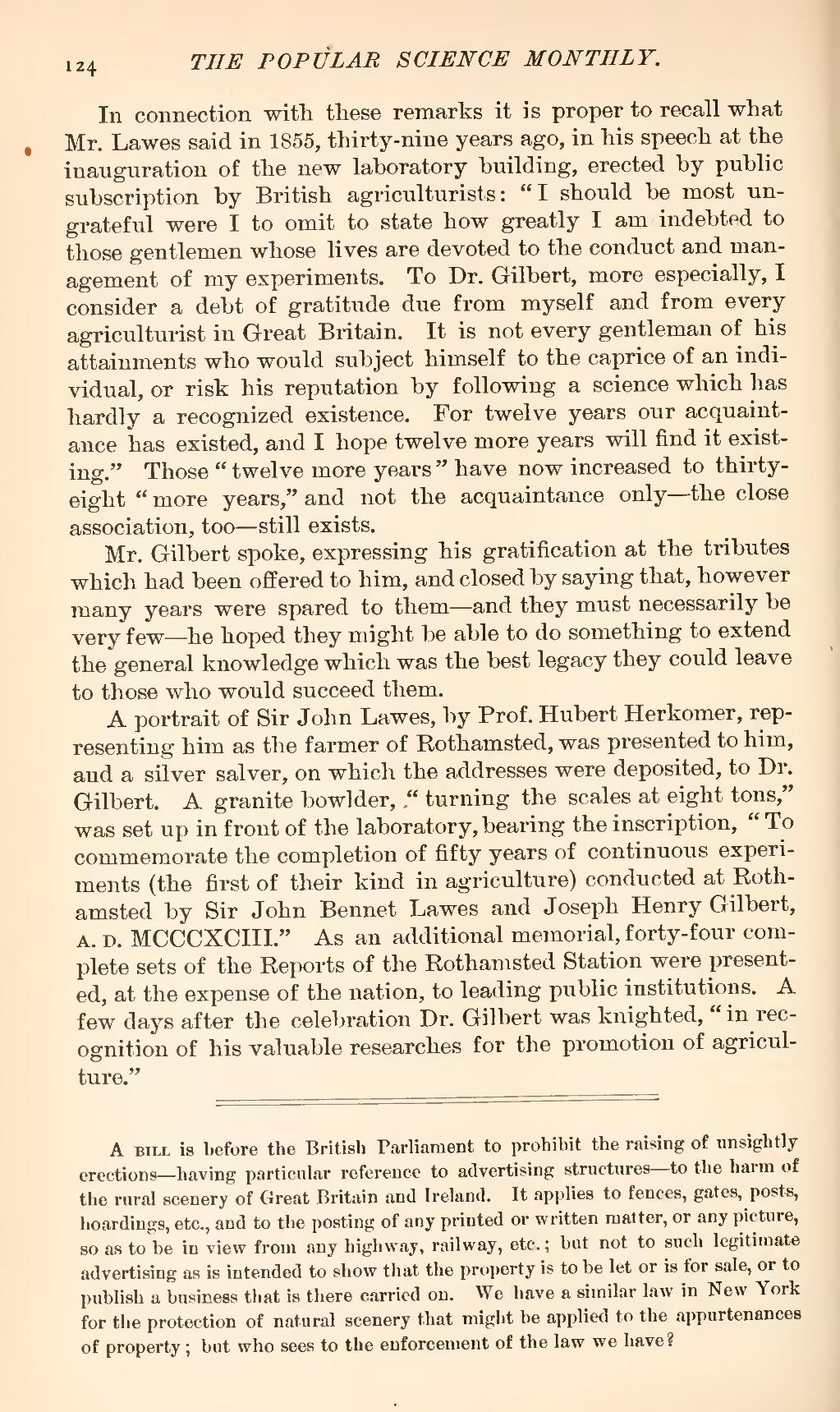In connection with these remarks it is proper to recall what Mr. Lawes said in 1855, thirty-nine years ago, in his speech at the inauguration of the new laboratory building, erected by public subscription by British agriculturists: "I should be most ungrateful were I to omit to state how greatly I am indebted to those gentlemen whose lives are devoted to the conduct and management of my experiments. To Dr. Gilbert, more especially, I consider a debt of gratitude due from myself and from every agriculturist in Great Britain. It is not every gentleman of his attainments who would subject himself to the caprice of an individual, or risk his reputation by following a science which has hardly a recognized existence. For twelve years our acquaintance has existed, and I hope twelve more years will find it existing." Those "twelve more years" have now increased to thirty-eight "more years," and not the acquaintance only—the close association, too—still exists.
Mr. Gilbert spoke, expressing his gratification at the tributes which had been offered to him, and closed by saying that, however many years were spared to them—and they must necessarily be very few—he hoped they might be able to do something to extend the general knowledge which was the best legacy they could leave to those who would succeed them.
A portrait of Sir John Lawes, by Prof. Hubert Herkomer, representing him as the farmer of Rothamsted, was presented to him, and a silver salver, on which the addresses were deposited, to Dr. Gilbert. A granite bowlder, "turning the scales at eight tons," was set up in front of the laboratory, bearing the inscription, "To commemorate the completion of fifty years of continuous experiments (the first of their kind in agriculture) conducted at Rothamsted by Sir John Bennet Lawes and Joseph Henry Gilbert, A. D. MCCCXCIII." As an additional memorial, forty-four complete sets of the Reports of the Rothamsted Station were presented, at the expense of the nation, to leading public institutions. A few days after the celebration Dr. Gilbert was knighted, "in recognition of his valuable researches for the promotion of agriculture."

